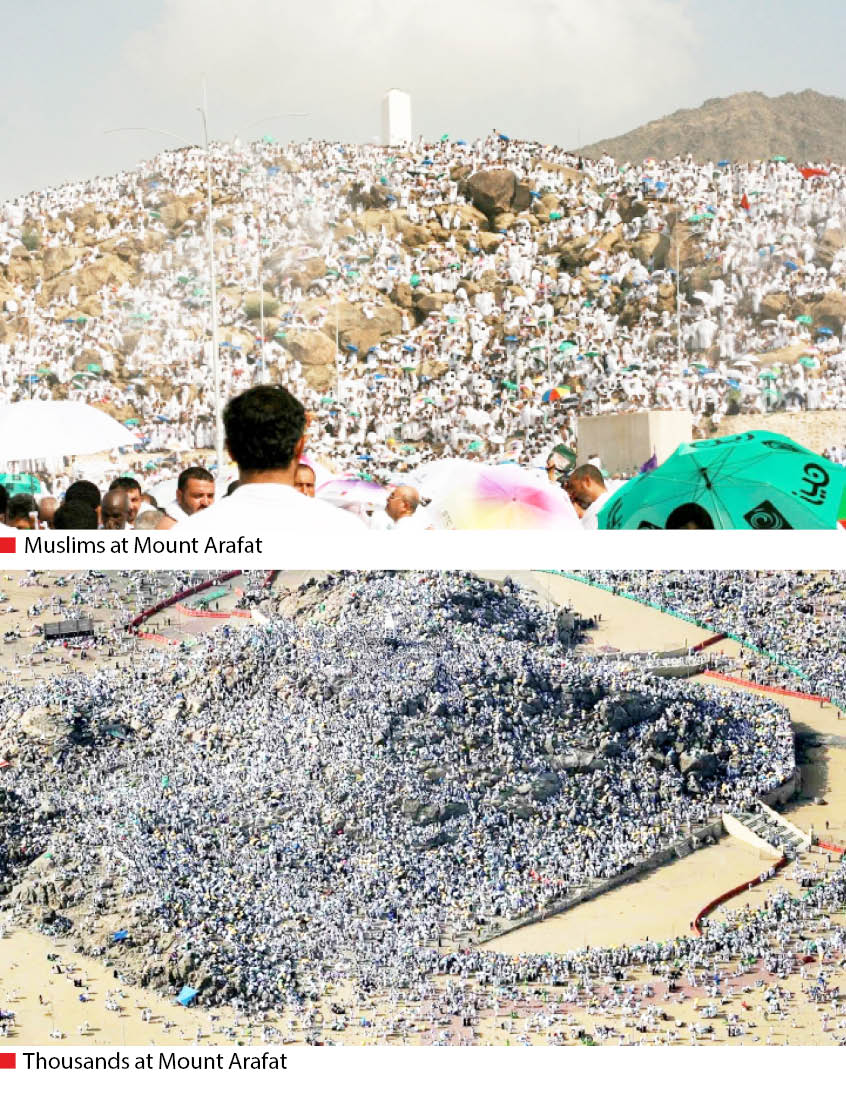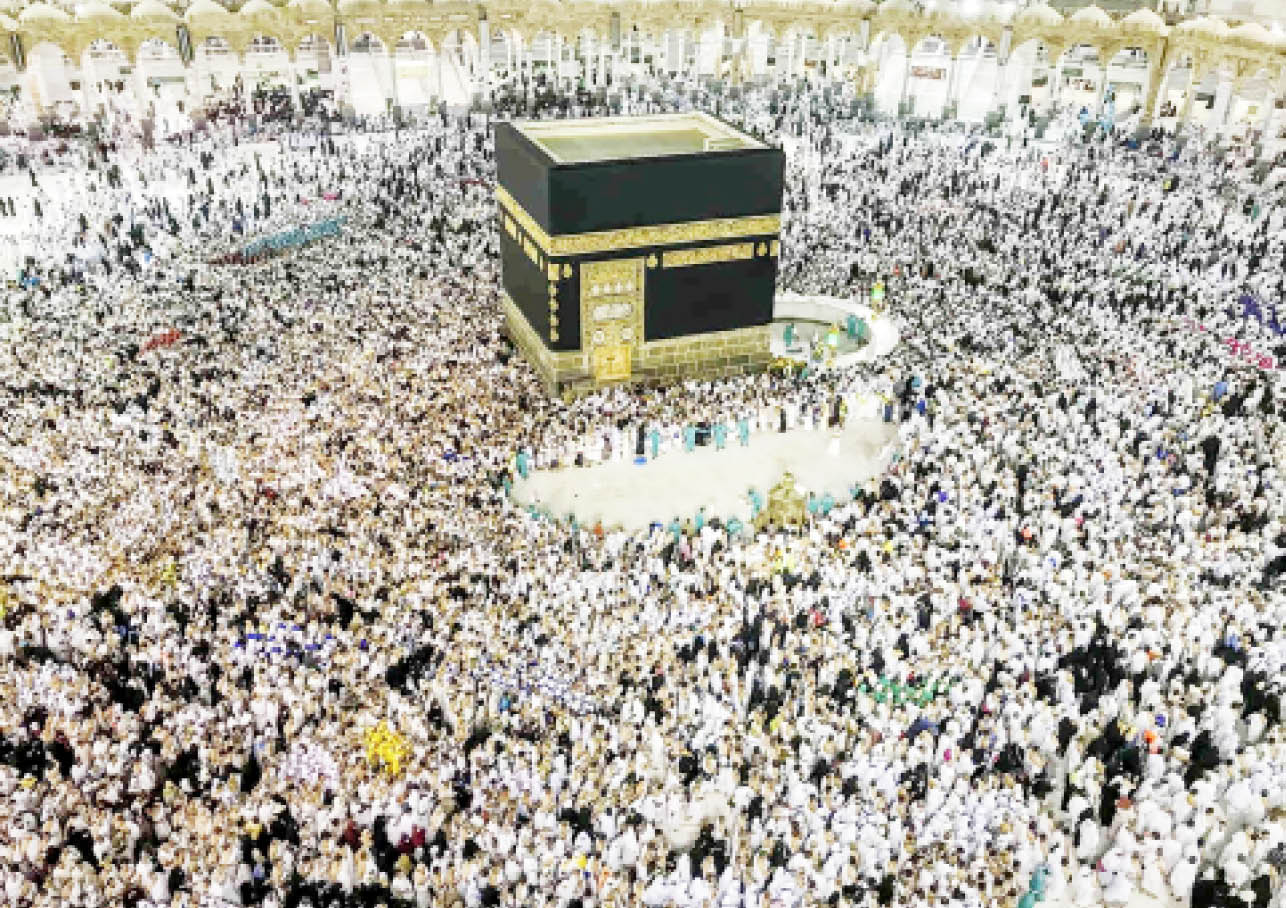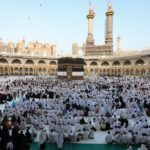Mount Arafat where Prophet Mohammed gave his final sermon witnessed the biggest crowd in years with over 2.5 million pilgrims reported to have scaled Mount Arafat, an important ritual of pilgrimage.
June 27 was the peak of spirituality in the 2023 Hajj, where over 2.5pilgrims from over 160 countries, converged on the Arafat Plain, glorifying and supplicating to Allah, the omnipotent.
It was the largest Hajj since the COVID-19 pandemic forced Saudi authorities to cut permits to a few thousands, down from millions in 2020, before eventually restoring the number ahead of the ongoing exercise.
The 2023 Hajj is particularly special to Nigerian pilgrims, who were given 95,000 slots and airlifted 100 per cent before the deadline.
- Burna Boy wins Best international act at 2023 BET awards
- President Tinubu, kindly rescue Nigerian Correctional Service
They would hardly forget last year’s experience, where many of them had their hopes dashed due to visa and airlift issues that bedeviled the exercise, although some of them had made deposits for the spiritual journey since 2019.
Ahead of the Hajj, the Holy Mosque in Makkah was filled to the brim with pilgrims, especially during Juma’at prayer, even before the 6th of Zhul-Hajj, with the innermost courtyard, Mataf, that is reserved for those performing Umrah, blooming with men and women circumumbulating the Ka’abah in its new Kiswa (garment), glorifying Allah and asking for his favour and forgiveness.
Sunday midnight was another joy as the pilgrims set out to their camp in the Muna outskirts, where they spent some hours before proceeding to Arafat, proclaiming the Talbiya, for Arafat Assembly—the major pillar of their Hajj.
While first timers were filled with the joy of coming to attend the most important pillar of their unprecedented Hajj, old termers were equally amazed with the improvements in Arafat.

There are more beautifully customised tents to keep them, at least under room temperature in the harsh weather conditions with morning temperature at 40 degrees celcius.
Mount of Mercy (Jabal al-Rahma) and other mountains in the Arafat Plain are not just filled, even the renowned Namira Mosque, security operatives, as well as transport, catering, sanitation, telecommunications and other service providers witnessed a population they never had over time.
The probability of stampede or at least petty crimes, such as traffic violation or gridlock would be high in any public gathering with over 2.5 million spectators.
Ironically, there were rarely serious problems, even as the pilgrims assembled in the same place and dispersed in about 24 hours to Muzdalifa.
The Saudis must have been preparing for this for long, I guess. I have never seen crowd managers better than the Saudis, although I am not an expert.
Public enlightenment on the need for regular drinking of enough water and to avoid unnecessary staying under the sun started almost the same time with the Hajj season launch.
Telecom service providers, such as the Stc sent SMS to pilgrims, reminding them of health and other emergency lines, as well as the need to be regularly hydrated.
Although there were queues at public toilets, potable water was not interrupted. Getting water for ablution was not a big problem, and some pilgrims bathed more than once in Arafat.
The feeding service I got was perfect, with pilgrims served with snacks, fruits, juices, ice cream tea and cold water within short intervals.
They were wished good morning with snacks and juice, followed by three plates of rice with chicken at different times, coupled with fruits, juices, ice cream and cold water at various intervals within 12 hours.
A particular tent had a glut of chocolate ice cream in a fridge as at the time pilgrims were leaving for Muzdalifa.
Even with the temperature at over 46 degrees celcius, pilgrims were energetic to spend the day communicating with their Lord.
At midday, the imam delivered a sermon calling on the congregation to pray for good leadership, treat women with kindness as commanded by Islam as well as seek Allah’s forgiveness and the best in the world and the hereafter.
Despite initial panic among pilgrims when movement to Arafat commenced, the evacuation was virtually seamless, and within hours, Muna Camp was a ghost town, except for service providers and security personnel.
Likewise, the move to Muzdalifa was easier, with less traffic compared to previous years.
Pilgrims were transported according to the arrangement made by the Saudi authorities in batches, within 15 minutes each, to curb traffic congestion.
While pilgrims waited for the vehicles assigned to evacuate them to do so, the time earmarked for seems unrealistic, even though the plan is working.
While pilgrims have been moved to Muzdalifa field to pass the night before returning to Muna on the Eid Adha day for the remaining part of their Hajj, the 2023 Arafat exercise serves as a good example that with proper coordination and planning, large numbers will not deter an effective service.

 Join Daily Trust WhatsApp Community For Quick Access To News and Happenings Around You.
Join Daily Trust WhatsApp Community For Quick Access To News and Happenings Around You.

